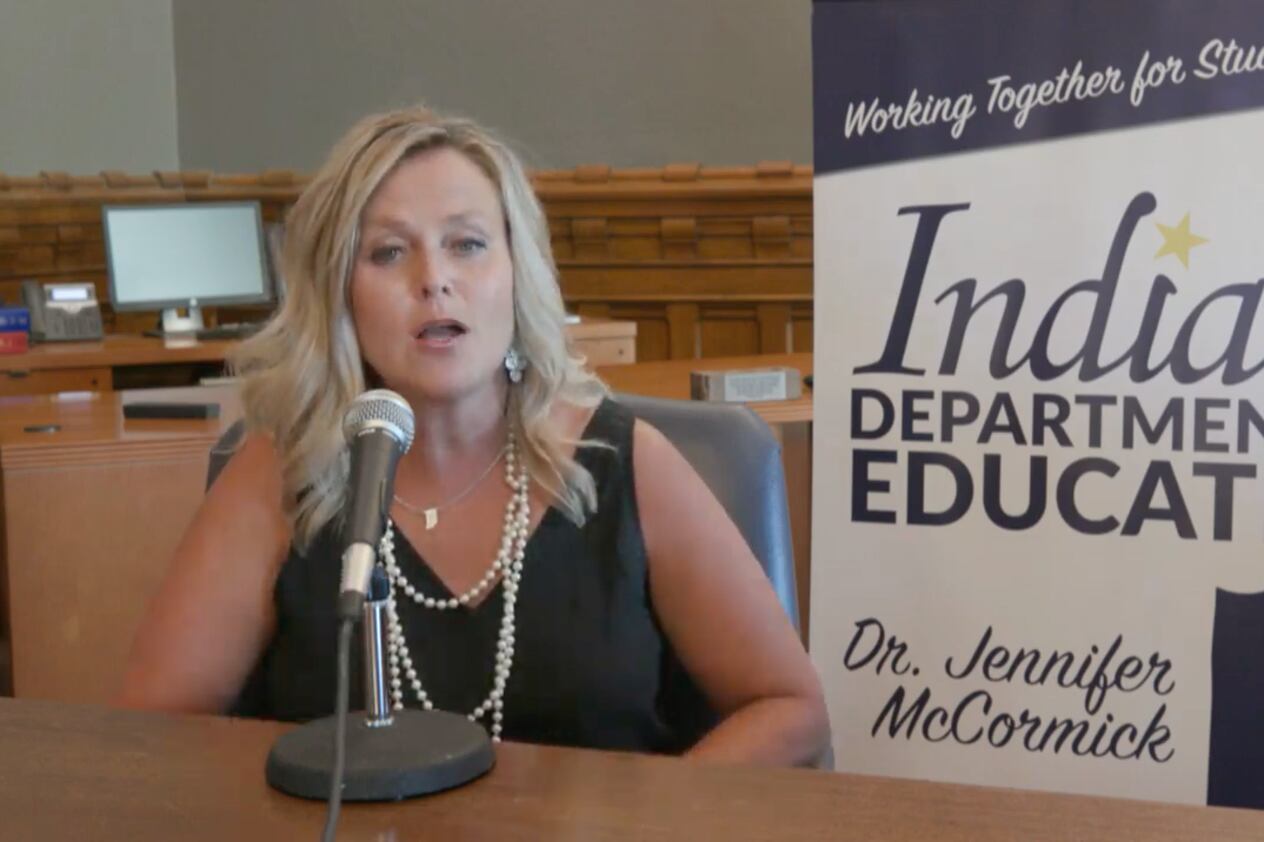Days into the new school year for many Indiana students, district leaders are grappling with how to respond to positive cases, decide when to go virtual, and provide required standardized testing, among other concerns.
State Superintendent Jennifer McCormick addressed the media Thursday by video to answer some of the biggest questions about schools reopening. Here are five takeaways:
1. Administering federally mandated standardized tests could be a problem.
Pursuing waivers from federally mandated, high-stakes tests will be important for the state, McCormick said. Still, she said, the federal government appears to be less interested in granting waivers than in the spring, when leaders took the unprecedented step of excusing schools from standardized tests.
“I’m not sure how fair it is given the fluidity of the situation,” McCormick said about high-stakes tests.
It’s unclear how schools offering only virtual learning will administer the tests. Many don’t usually allow tests to be taken from home and monitored virtually, McCormick said. So far, only 19 of the state’s roughly 300 districts have opted into the extra fall IREAD3 exam, which is optional for fourth graders who missed it last spring.
2. Having thresholds for when schools need to close are critical.
Districts need to have a plan for when to shut down schools or change procedures, which makes setting thresholds that trigger action critical, McCormick said. Those decisions should be made by medical experts, not the department of education, she said.
It’s a call that puts her at odds with Gov. Eric Holcomb and Health Commissioner Kristina Box, who continue to defend not setting statewide benchmarks, saying each area is affected by COVID-19 differently and those decisions should be made locally.
McCormick said she understand the reluctance. “But we do have a lot of superintendents still asking for that.”
3. The number of school districts starting the year online has nearly doubled.
At first, 17 Indiana districts told the state they’d start the year virtually, McCormick said. That number is now up to 31. That still leaves the vast majority of districts opening in person.
“I trust those school districts are making the best decisions they can,” she said. “Nothing is perfect in a pandemic.”
4. Indiana isn’t joining a lawsuit against U.S. Secretary of Education Betsy DeVos over relief money.
McCormick said Indiana did not join other states in a lawsuit against DeVos’ controversial guidance because state Attorney General Curtis Hill wasn’t interested.
In May McCormick was quick to reject the federal directive, which would have rerouted millions in federal coronavirus relief money to private schools. DeVos was criticized for interpreting the law to benefit her political agenda. On Thursday, McCormick commended the states involved.
“I feel like that was the right thing to do,” she said. “People are playing games and I have no patience for that under a pandemic. Or not under a pandemic, for that matter.”
5. High schools are worried about meeting new graduation requirements.
This year’s freshman class will be the first to fall under the state’s new high school graduation requirements, known as Graduation Pathways, and other students have opted into it early. But administrators are concerned about meeting some of the requirements, including finding internships or offering dual credit or career technical classes entirely online.
A student pursuing nursing may typically earn credit by working in a nursing home, which likely won’t happen this year, McCormick said.
“Those are hard to come by right now,” she said. “It’s the health concerns. Finding those connections and partnerships, they were there in a lot of areas and they will come back. This is just a temporary piece, we hope.”






